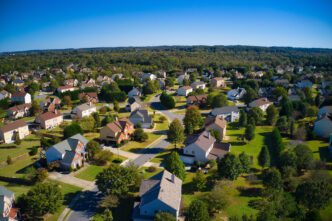In 2023, the homeownership rate among Black households in the U.S. was recorded at 45.7%, a significant decline from its peak of 49% in 2004. This gap underscores the profound challenges Black Americans face in securing homeownership, a critical foundation for building generational wealth.
Black homeownership is confronted by systemic obstacles including high interest rates and aggressive investor actions in the housing market. These elements were discussed in depth at the recent National Association of Real Estate Brokers (NAREB) Black Wealth Summit held on November 15 at Clark Atlanta University. The summit served as a vital forum, addressing essential issues in housing policy and lending, with a notable focus on appraisal bias and recent initiatives to mitigate such disparities.
The stark contrast in homeownership rates is evident when comparing Black households, at 45.7% in 2023, to White households, at 74.3% the same year. Acting HUD Secretary Adrianne Todman emphasized ongoing efforts to lower barriers and expand credit access, aiming to bolster sustainable generational wealth through increasing homeownership. She highlighted that around three million American families have been aided in becoming first-time homeowners, a challenging accomplishment in today’s housing climate.
Todman also noted HUD’s proactive engagement with Congress through a detailed report concerning the Federal Housing Administration’s fund, ensuring its continued support for prospective Black and brown first-time homeowners. She further mentioned innovative strategies such as considering on-time rental payments in mortgage assessments to overcome traditional barriers like student debt.
Atlanta Mayor Andre Dickens reflected on the aspirational nature of homeownership, recounting personal experiences that underscore its stabilizing effect on families. He vividly recalled the transformative power of moving from an apartment to a house, a testament to the profound impact homeownership can have.
Jim Carr, author of pivotal reports covering housing and appraisal biases, highlighted that systemic forces often negate the effectiveness of initiatives like down payment assistance for Black homebuyers. He described how high housing prices and competition from cash-rich investors further disadvantage those striving to enter the housing market, despite having adequate resources and support.
Carr elaborated on the growing racial wealth gap, pointing to a disproportionate reliance on housing as a wealth source among Blacks compared to Whites, who enjoy more substantial home equity. Anecdotal evidence from appraisal studies revealed systemic valuation biases, often detracting from the value of homes owned by Black families.
Dr. Courtney Johnson Rose, president of NAREB, spoke about the organization’s efforts to close the wealth gap through initiatives like the Building Black Wealth Tour. This tour empowers Black families by providing resources and guidance on pathways to homeownership and financial stability, reaching over 100 cities.
The tour, complemented by workshops and one-on-one sessions, aligns with broader community efforts to foster economic equity, enhance Black homeownership rates, and revitalize underserved areas. An associated program, the NAREB Developers Academy, aims to increase Black participation in the real estate development sector, offering education and certification opportunities to budding professionals.
Through collaboration with influential partners, including the African American Mayors Association, NAREB targets strategic cities for development, turning areas of neglect into thriving communities and reinforcing homeownership as a powerful tool for economic advancement.
The path toward increasing Black homeownership remains fraught with challenges as systemic and economic barriers persist. Initiatives such as those led by NAREB are crucial in addressing these disparities, offering tangible solutions and support to foster growth and prosperity in Black communities across America.
Source: FloridaRealtors








